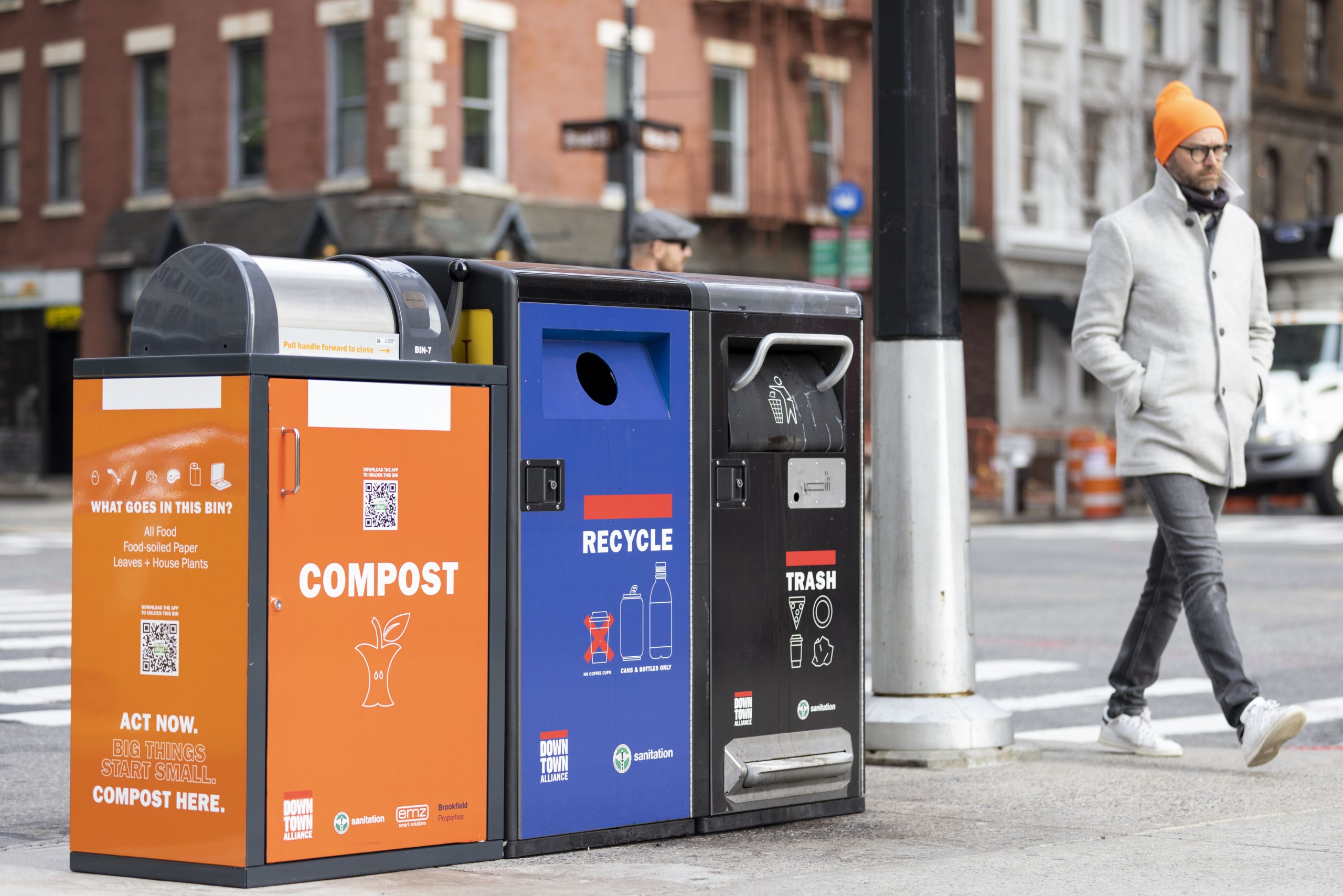“By refusing to send our trash to the communities adjacent to waste transfer stations, landfills, and incinerators—predominantly low-income communities of color—our city will be taking concrete steps to stand in solidarity with the struggles of environmental justice communities fighting to protect their land, air, and health.”

In 2015, New York City set a bold goal of sending zero waste to landfills by 2030. That means we have just eight years to transform the largest municipal waste operation in the country and dramatically reduce our city’s carbon footprint. We’ve made progress, but one area we’re desperately behind in is composting.
Organic waste currently makes up a third of what our City sends to landfills, resulting in hundreds of thousands of tons of greenhouse gas emissions every year. Food waste and organic matter releases methane as it decomposes—a greenhouse gas that is over 80 times more destructive to our environment than carbon dioxide.
While cities with comparable populations, like Seoul, are leading the effort on composting by recycling 95 percent of their food waste, it’s estimated that less than 10 percent of New York City homes that are offered residential composting take part. Beyond expanding this program to meet the needs of all five boroughs, we need a serious investment in educating our city about how important composting is to reduce our carbon footprint. That’s why we’re proud to introduce legislation to bring universal and mandatory residential composting to New York City.
Zero waste policies like universal composting will create hundreds of good green union jobs. To meet the increased demand, New York City will need hundreds of workers to collect and process the millions of tons of organic waste now being put to better use. On the other end, we will generate millions of pounds of compost from food scraps to enrich our city soils, support urban agriculture, enhance our urban forest, absorb stormwater, and increase resilience to flooding.
Zero waste and universal composting will bring down the $450 million price tag to ship our waste to distant communities for landfills and incineration. Achieving zero waste and universal composting in New York City will not only improve the lives of New Yorkers but will send a message that we are serious about tackling the climate crisis, building sustainable waste systems, and enhancing our urban ecology.
By refusing to send our trash to the communities adjacent to waste transfer stations, landfills, and incinerators—predominantly low-income communities of color—our city will be taking concrete steps to stand in solidarity with the struggles of environmental justice communities fighting to protect their land, air, and health.
What’s even more inspiring is that we are not alone on this issue. Dozens of other councilmembers and hundreds of thousands of New Yorkers across every neighborhood are joining us. Working-class communities in the outer boroughs have been waiting for New York City to stop enacting environmental policies that exclude people of color and finally give them access to curbside organics collections and composting. Additionally, without universal composting, our city will continue the environmentally racist practice of sending millions of pounds of trash to decompose near communities of color hundreds of miles away. We refuse to allow this unjust cycle to continue any longer.
As feminists and environmental justice activists, and two new councilmembers who have a deep love for New York City, we ran for office because we refuse to lose our city to the climate crisis. We reject complacency and inaction and are working towards a resilient, flourishing, green city. We imagine a city where zero waste systems are integrated into every aspect of our lives—where it becomes second nature to us all. We see a city where every household, every commercial street, and every community has access to composting.
The time to pass universal composting is now. We have the most progressive City Council that New York City has ever seen. Let’s commit ourselves to the livable future we all deserve.
Shahana Hanif is a member of the New York City Council representing the 39th district in Brooklyn. Sandy Nurse is a councilmember representing Brooklyn’s 37th district and chair of the Council’s sanitation committee.

